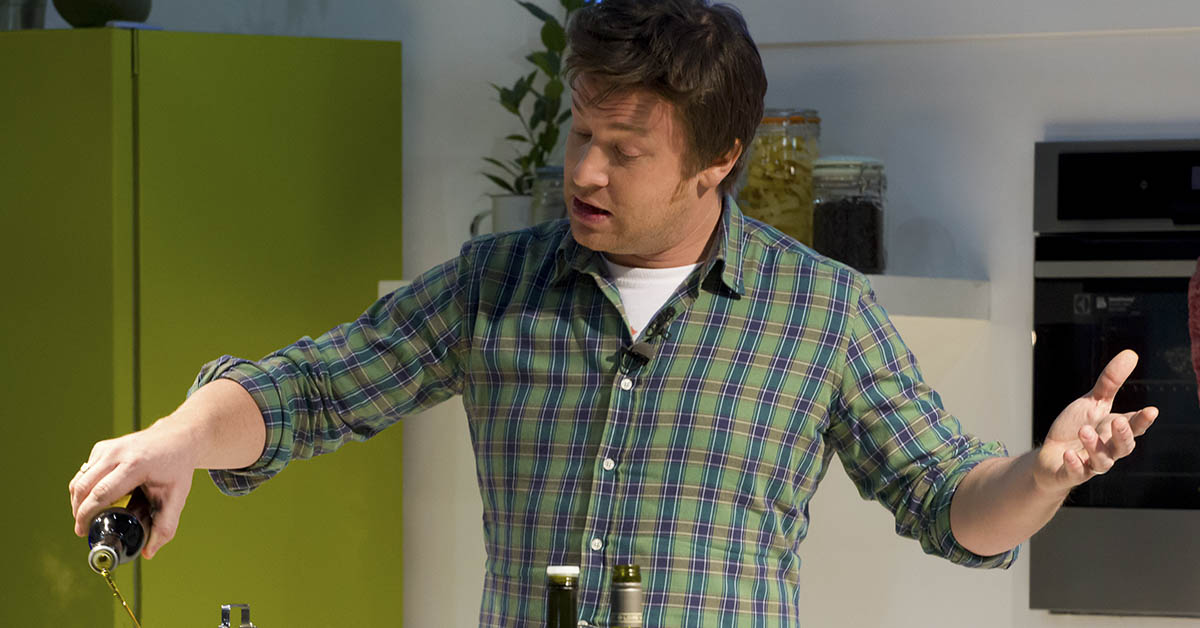Jamie Oliver, widely known for his culinary expertise and passion for healthy eating, has faced a hidden battle with slipped discs that has left him incapacitated at times. The popular celebrity chef and food advocate has struggled with herniated discs for the last four years. It has sometimes limited his ability to stand for more than 40 seconds at a time. But what causes herniated discs, is recovery possible, and most importantly, how do you prevent them in the first place? This is what we know.
Understanding Jamie Oliver’s Health Condition
Jamie Oliver, with his boundless energy and charisma, has always appeared invincible. Yet, behind the scenes, he has grappled with the debilitating effects of slipped discs. A slipped disc, also known as a herniated disc, occurs when the soft inner portion of a spinal disc pushes through a crack in the tougher exterior. This displacement can put pressure on the surrounding nerves, causing pain, weakness, and limited mobility. Jamie’s battle with slipped discs has resulted in moments of excruciating pain, leaving him unable to perform simple tasks without assistance.
“I’m just getting back into normal gyming as I’ve had four years of three slipped discs. It’s about managing it — my job doesn’t allow me not to work,” Jamie said. “I’m just getting back into normal gyming as I’ve had four years of three slipped discs. It’s about managing it — my job doesn’t allow me not to work.” (1)
What Is A Herniated Disc?
A herniated disc is a condition in which the soft inner portion of a spinal disc pushes through a crack in the tougher exterior. This displacement can put pressure on the surrounding nerves, causing pain, weakness, and limited mobility. A herniated disc can occur anywhere along your spine but is most common in the lower back (lumbar region) and neck (cervical region). (2)
Read: 10 Home Remedies for Joint Pain and Arthritis
Causes of Herniated Discs
Herniated discs can arise due to various factors, both acute and chronic. Some common causes include (3):
- Age: As we age, the discs in our spine gradually lose their elasticity, making them more prone to herniation.
- Physical stress: Engaging in activities that involve repetitive bending, lifting heavy objects, or twisting the spine places immense stress on the discs, increasing the risk of herniation.
- Poor posture: Maintaining a poor posture, such as slouching or sitting improperly for extended periods, places undue pressure on the spinal discs and can contribute to herniation.
- Excess body weight: Carrying excess weight puts additional strain on the spine, increasing the likelihood of disc herniation.
- Genetics: Some individuals may have a genetic predisposition to weak spinal discs, making them more susceptible to herniation.
Prevention is Key
While the occurrence of slipped discs may seem inevitable, there are measures one can take to reduce the risk or delay their onset. By adopting the following practices, individuals can potentially safeguard against herniated discs:
- Maintain a healthy weight: A healthy weight reduces the strain on the spinal discs and minimizes the chances of herniation.
- Exercise regularly: Engage in regular physical activity, focusing on exercises that strengthen the muscles supporting the spine, such as swimming, walking, and yoga.
- Practice proper posture: Be mindful of maintaining good posture, both while sitting and standing, to alleviate unnecessary strain on the spinal discs.
- Lift with care: When lifting heavy objects, employ proper lifting techniques, utilizing your legs rather than your back, and avoiding sudden twisting or jerking movements.
- Take breaks during prolonged sitting: If your job or lifestyle involves prolonged periods of sitting, make a conscious effort to take regular breaks and perform stretches to relieve pressure on the spine.
Managing a Herniated Disc
For those who are already experiencing difficulties associated with a herniated disc, there are steps and treatments available to alleviate pain and restore functionality. Consulting with a qualified healthcare professional for accurate diagnosis, personalized treatment plans, and guidance is crucial. The management of a herniated disc may involve a combination of the following approaches:
- Physical therapy: A trained physical therapist can provide exercises and stretches that strengthen the back muscles, improve flexibility, and relieve pressure on the herniated disc.
- Pain management: Over-the-counter pain relievers or prescribed medications may be recommended to manage pain and inflammation associated with the herniation.
- Hot and cold therapy: Alternating hot and cold packs applied to the affected area can help reduce pain and inflammation.
- Epidural steroid injections: In more severe cases, a healthcare professional may administer steroid injections to decrease inflammation and pain in the affected area.
- Surgical intervention: In very rare scenarios, surgery may be recommended if conservative treatments fail to provide relief. However, surgical intervention is typically a last resort.
The Bottom Line
Jamie Oliver’s secret battle with slipped discs is a powerful reminder that health challenges can impact anyone, regardless of their public persona. Individuals can mitigate the risks associated with this condition by understanding the causes of herniated discs, taking preventive measures, and seeking appropriate medical guidance. For those already grappling with a herniated disc, various treatment options exist that prioritize pain management and restoration of mobility. Remember, your health is paramount, and it is essential to prioritize self-care while navigating such challenges.
Keep Reading: Yoga for Sciatica: 8 Poses in 8 Minutes for Back Pain Relief
Sources
- “Jamie Oliver discusses secret health battle as he reveals slipped discs left him unable to stand for more than 40 seconds at a time.” Daily Mail. Sean O’Grady. January 17, 2024.
- “8 Tips to Avoid a Herniated Disc: Minimizing the Risks.” Sap Named. Majid Ghauri. May 24, 2022.
- “How to Prevent Re-Herniating a Disc and Still Live Your Life.” Chicago Spine. January 18, 2021.

